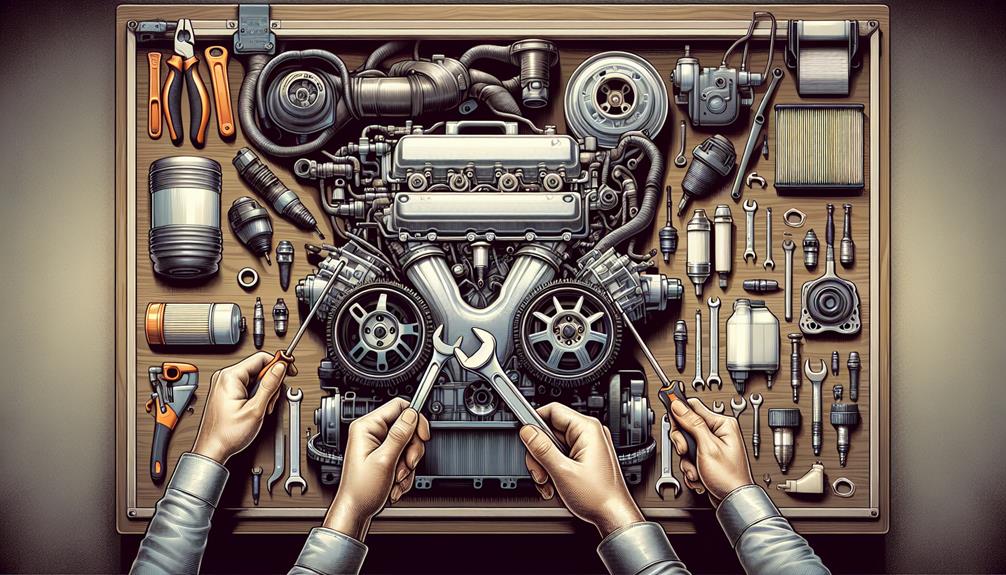
Warning Signs Your Toyota Engine Needs an Auto Mechanic’s Attention
June 6, 2024Common Toyota Engine Problems and How an Auto Mechanic Can Solve Them
June 6, 2024Maintaining the longevity and performance of your Toyota engine requires more than just regular oil changes and occasional tune-ups. As a motor vehicle owner, understanding the intricate details of your engine’s operation and the nuances of preventative maintenance can go a long way in reducing unexpected breakdowns and costly repairs.
This discussion aims to provide essential auto mechanic tips that are specifically tailored to Toyota engines, offering an informed approach to regular maintenance checks and advanced engine care. The knowledge shared here not only seeks to deepen your understanding of your vehicle’s engine but also to equip you with practical skills to keep your Toyota running smoothly for years to come.
Regular Maintenance Checks for Toyota Engines
To ensure the longevity and optimal performance of your Toyota engine, it is essential to perform regular maintenance checks as recommended by the manufacturer. These checks involve assessing the engine oil levels and quality, evaluating the cooling system, inspecting the air filters, and ensuring the proper functioning of the timing belt.
Regularly checking the engine oil is particularly crucial as it lubricates, cools, cleans, and seals the engine. The cooling system, which prevents overheating, requires regular inspection and servicing. Air filters trap dust and particles, protecting the engine and improving fuel efficiency. Lastly, a malfunctioning timing belt can lead to severe engine damage.
Therefore, belonging to a community that values such diligence in car maintenance can significantly extend your vehicle’s life span.
Advanced Tips for Toyota Engine Care
Beyond the basic maintenance routines, implementing advanced auto mechanic care techniques can notably enhance the performance and durability of your Toyota engine. Here are four advanced tips:
- Periodic Compression Tests: This helps to assess the condition of your engine’s valves, its valve seats, and piston rings, and to reveal any leakage.
- Fuel System Cleaning: For optimal performance, clean the fuel injectors, the intake valves, and the combustion chambers.
- Engine Decarbonization: This process removes carbon deposits within the engine, enhancing its efficiency and reducing emissions.
- Regular Oil Analysis: This not only measures the oil’s properties, but also traces of metal, which could signal wear and tear.




